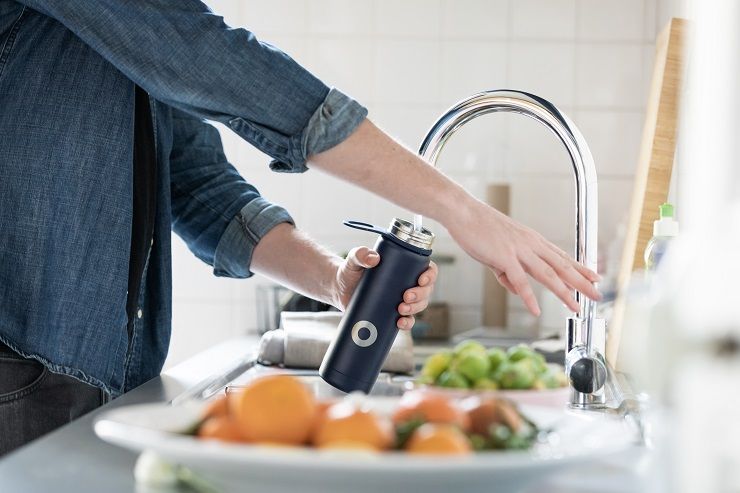Proper hydration is vital for athletes to maintain optimal health and performance. However, there are often questions and misconceptions surrounding dehydration in sports. In this article, we address five frequently asked questions about hydration to help you understand its importance and make informed choices regarding your fluid intake.
Are You Hydrated Enough? Unlocking the Secrets of Hydration in Sports
Hydration plays a crucial role in athletic performance, and even mild dehydration can have a negative impact on your efforts. Proper hydration is not only about quenching your thirst but also ensuring that your body has enough fluid to perform at its best. In this article, we address the most commonly asked questions about hydration to help you understand its importance and make informed choices for your fluid intake.
Dehydration in Sports: Answering 5 Frequently Asked Questions
1) Dehydration in Sports: Which Activities Are Most Prone?
When it comes to dehydration, certain sports require extra attention to hydration due to the significant fluid loss through sweating during prolonged activities. Aerial sports, such as pole dancing, involve intense movements and high-energy expenditure, leading to increased sweat production. Similarly, endurance activities like long-distance running and cycling, as well as dance and martial arts, can put athletes at a higher risk of dehydration. It’s essential to note that even individuals engaged in resistance training can benefit from maintaining proper hydration to enhance their performance.
For those involved in aerial sports or pole dancing, fluid requirements can vary depending on the intensity and duration of their training sessions. Monitoring urine color can provide valuable insights into hydration levels. If you observe darker urine before or after a game or training session, it likely indicates inadequate hydration. By paying attention to these signs and replenishing fluids accordingly, you can support optimal performance and prevent the adverse effects of dehydration.
2) Estimating Fluid Needs: A Simple Guide for Training
Understanding your body’s fluid needs during training is key to staying properly hydrated. One effective method is to weigh yourself before and after a typical workout session. The weight lost represents the amount of fluids lost through sweat. By adding the fluids consumed during training to this number, you can get a realistic estimate of your true hydration needs. This approach helps you tailor your fluid intake to match the demands of your training sessions and maintain a healthy hydration balance.
3) Staying Well Hydrated During Training: Best Practices
To ensure proper hydration during training or games, it’s crucial to focus on replenishing the fluids you lost. After calculating the amount of fluids lost during training, aim to gradually consume an equivalent amount of water in small doses and small time intervals to avoid any gastrointestinal discomfort. Typically, it’s recommended to avoid consuming more than 200 ml of water (equivalent to 6-7 sips) every 10 minutes, unless your personal needs require additional intake. This practice is particularly useful for individuals involved in aerial acrobatics or those who tend to sweat easily.
Another effective strategy is to start your workout in a hyperhydrated state by consuming 200-300 ml of water shortly before exercise. This helps delay the onset of dehydration and supports optimal performance throughout your training session.
4) Water, Electrolytes, or Carbohydrates: What Do You Really Need?
Electrolytes, such as sodium and potassium, are essential for maintaining proper hydration and muscle function. While it’s popular among athletes to dilute electrolyte tablets in their water, research suggests that this is rarely necessary for most individuals. The body has its mechanisms to regulate electrolyte concentrations, even during excessive sweating. Lost electrolytes can be replenished through a balanced diet after training. However, in cases of prolonged and intense exercise, such as ultramarathons, hyponatremia (low sodium levels) may occur, necessitating electrolyte replacement during the race. If you choose to supplement electrolytes, look for products containing 400-1000 mg of sodium per liter and 120-220 mg of potassium per liter to adequately meet your needs.
Carbohydrates are the main source of energy during exercise and prolonged workouts, especially when glycogen stores in the body significantly decrease. Regular carbohydrate intake can boost athletic performance. Typically, additional carbohydrate consumption is needed during intense exercise lasting over one hour. However, it’s essential to ensure that the sugar concentration does not exceed 10% to avoid stomach discomfort.
For more in-depth information on the importance of hydration during exercise and strategies to find the right balance, check out our article on Hydration and Exercise: Finding the Right Balance.
5) Making the Right Choice: Water, Juices, or Sports Drinks?
The choice of hydration options depends on the duration and intensity of your exercise. If your exercise session lasts less than an hour, water is generally sufficient to replenish the fluids lost through sweat. However, for intense and prolonged exercise, sports beverages containing 10% carbohydrates can replace water and provide the necessary electrolytes. Juices can also be used during exercise to maintain hydration, but it’s advisable to dilute them with water to reduce sugar content and minimize the risk of gastrointestinal problems. After completing your exercise, juices can be consumed more liberally to aid in the immediate replacement of glycogen stores until you have your post-training meal.
Stay Hydrated for Peak Performance
By addressing common questions about dehydration in sports, we hope to provide clarity and promote healthy habits when it comes to fluid balance. Remember, staying adequately hydrated is crucial for overall health and performance, so pay attention to your body’s signals and make hydration a priority in your daily routine. By understanding the unique hydration needs of your sport or training regimen, you can make informed choices about fluid intake and optimize your performance. Stay hydrated and perform at your best!








